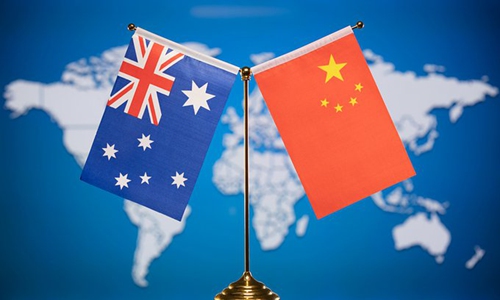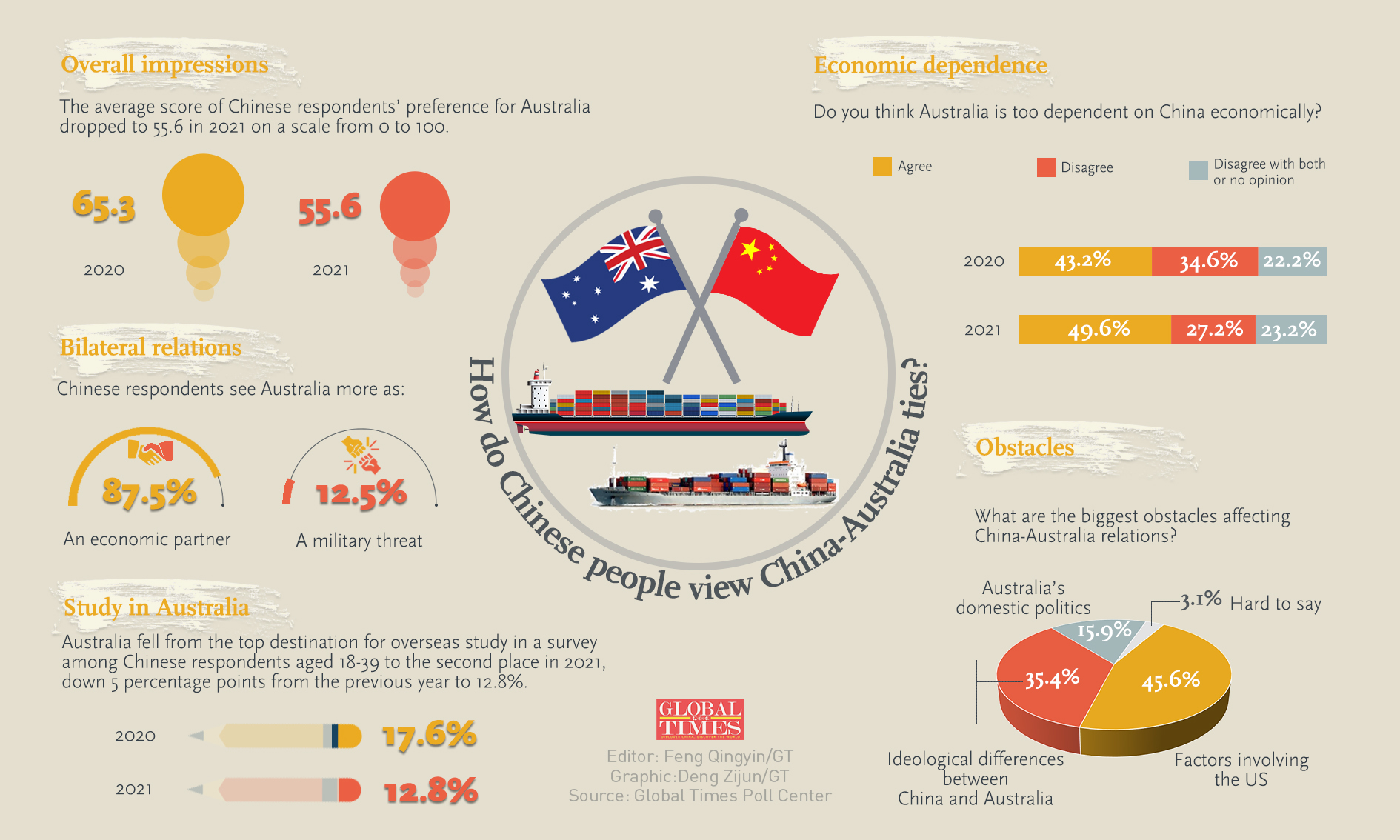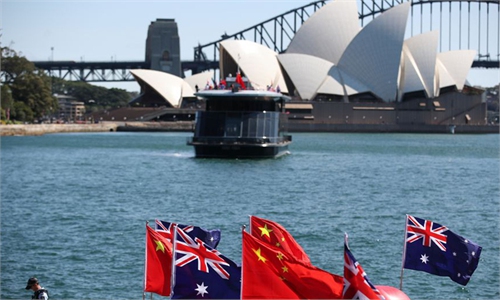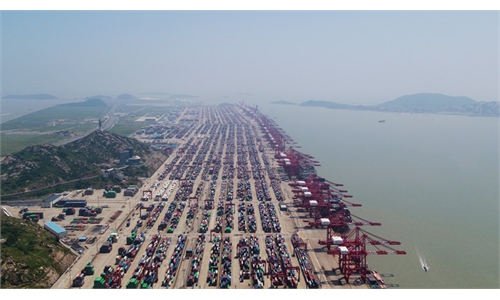GT survey shows 49.6% say Australia ‘too dependent’ on China economically
Chinese willingness to travel, study in the country drop amid friction

Photo: VCG
Almost half of the Chinese participating in the latest Global Times survey believe that Australia is "too dependent" on China in terms of its economy, up by 6.4 percentage points compared with a year ago. Meanwhile, Chinese people's willingness to travel and study in the country dropped, suggesting a further cooling down in trade in services amid seriously fraught ties.The survey was conducted by the Global Times Research Center in cooperation with the Australian Studies Center of Beijing Foreign Studies University (BFSU) from June 11-15 via an online questionnaire with market survey firm DATA100. The survey collected 2,067 responses in 10 Chinese cities among people aged 18-70.

How do Chinese people view China-Australia ties? Infographic: Deng Zijun/GT
The survey also showed that 76.9 percent of people don't believe that China is too dependent on Australia economically, although people who do believe that it is saw an increase of 5.4 percentage points from last year.
On the Australian side, according to a 2020 survey from the Lowy Institute, almost all Australians - 94 percent - agreed that the government should work "to find other markets for Australia to reduce our economic dependence on China".
This was the single largest point of agreement in the history of the Lowy Institute Poll. In 2019, 74 percent of Australians said that Australia was too economically dependent on China.
Although there are voices in Australia from time to time saying that "China cannot do without Australia in finding mineral products" and "despite the decline in bilateral relations, the trade volume is still rising, and China cannot do without Australia", judging from the results of the survey, Chinese people generally do not believe China is "overly dependent on Australia, economically," according to an analysis from the Australian Studies Center of BFSU.
Zhou Fangyin, director of the Center for Pacific Island Countries Studies of the Guangdong University of Foreign Studies, told the Global Times on Tuesday that the result showed that Chinese people are calmer and more positive than Australians, who are anxious to seek alternative export markets other than China.
"To some extent, it also shows that China does not rely on Australia as much as the reverse, and Chinese people don't think of the Australian market as a very important one," he said.
China is Australia's largest trading partner. In the 12 months to March, Australia exported A$149 billion ($116 billion) worth of goods to China, down 0.6 percent from the previous year. Exports, however, have been supported by strong prices for iron ore, the largest single item in trade with China, said a Reuters report.
In terms of wine, Australia, which used to be a strong competitor of French wine in the Chinese market, lost its top spot to French wine. In the first five months of this year, wine imports from Australia were only one-tenth of France's in terms of quantity, according to customs data.
Analysts also cautioned that though the current friction is still seen in trade in goods, trade in services will be further affected, given the tensions in bilateral ties.
The survey showed that those who chose Australia as an ideal tourist destination dropped by 4.3 percentage points compared with 2020. The survey also invited respondents aged 18-39 to select "the country that you most want to study in abroad" from nine popular study abroad destinations. The percentage for Australia fell from 17.6 percent in 2020 to 12.8 percent in 2021.
Education and tourism are the first and second major categories of Australia's services exports to China.
China's Foreign Ministry spokesperson Zhao Lijian said recently that responsibility for the fraying relations was "not at all China's" and that Australia should treat China with "objectivity" and "rationality".
China has been insisting on depoliticizing the economic and trade sectors, and therefore whether China will further take countermeasures against Australia, depends on Australia's attitude and policy direction.
China can take action against Australia related to all products except for iron ore -- the only commodity for which China finds it hard to obtain alternative sources, Yu Lei, chief research fellow at the research center for Pacific Island Countries of Liaocheng University in East China's Shandong Province, told the Global Times on Tuesday.
According to Yu, Australia has been trying to reduce its imports of products like clothes from China "as much as it can" and find alternative sources such as India, Vietnam and Sri Lanka, but it's hard to find such sources that can replace China.


